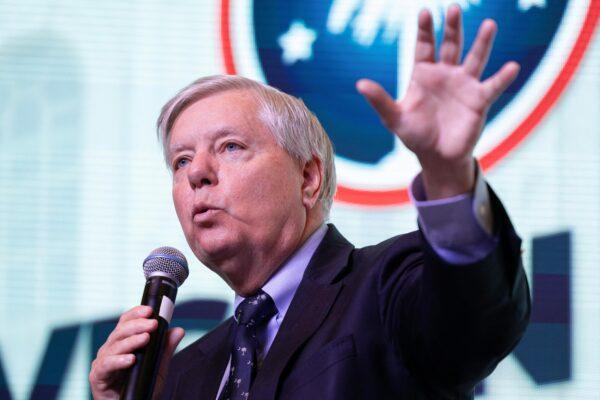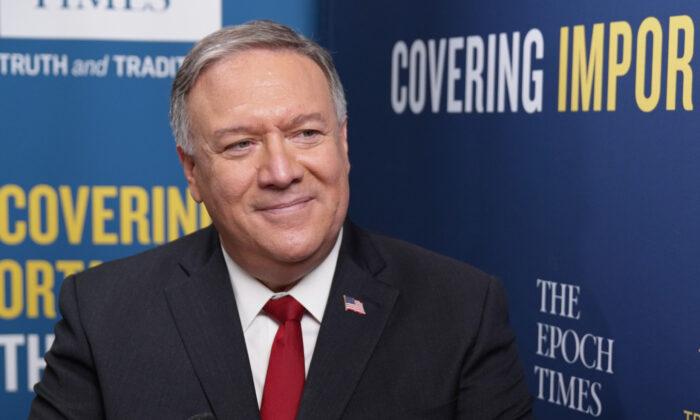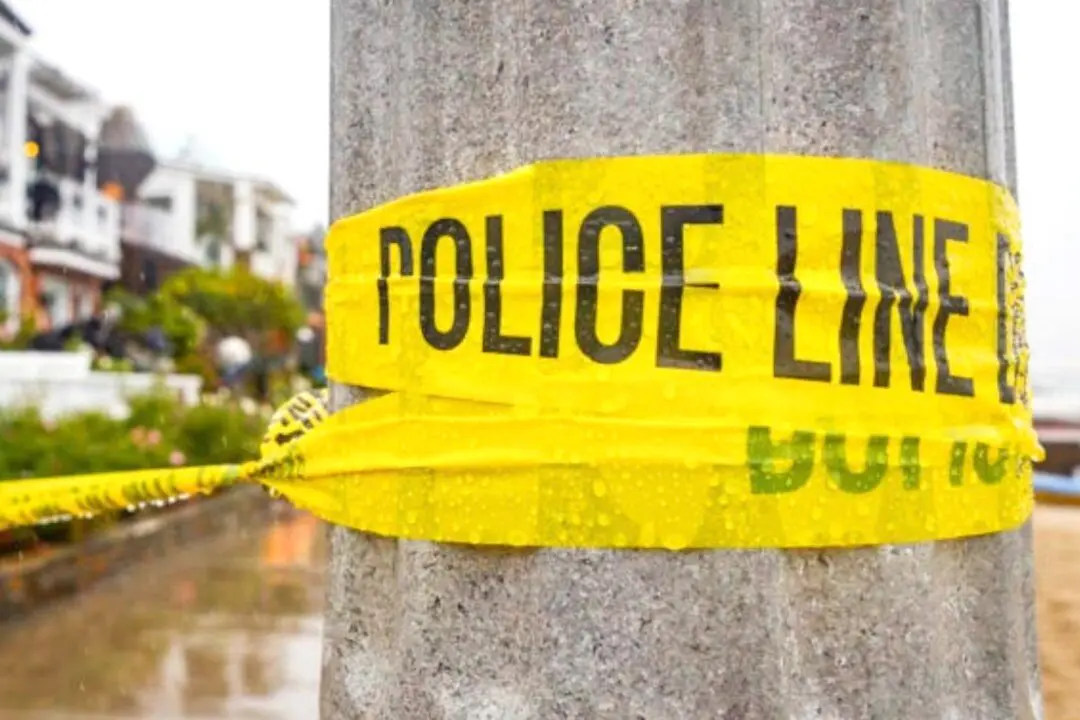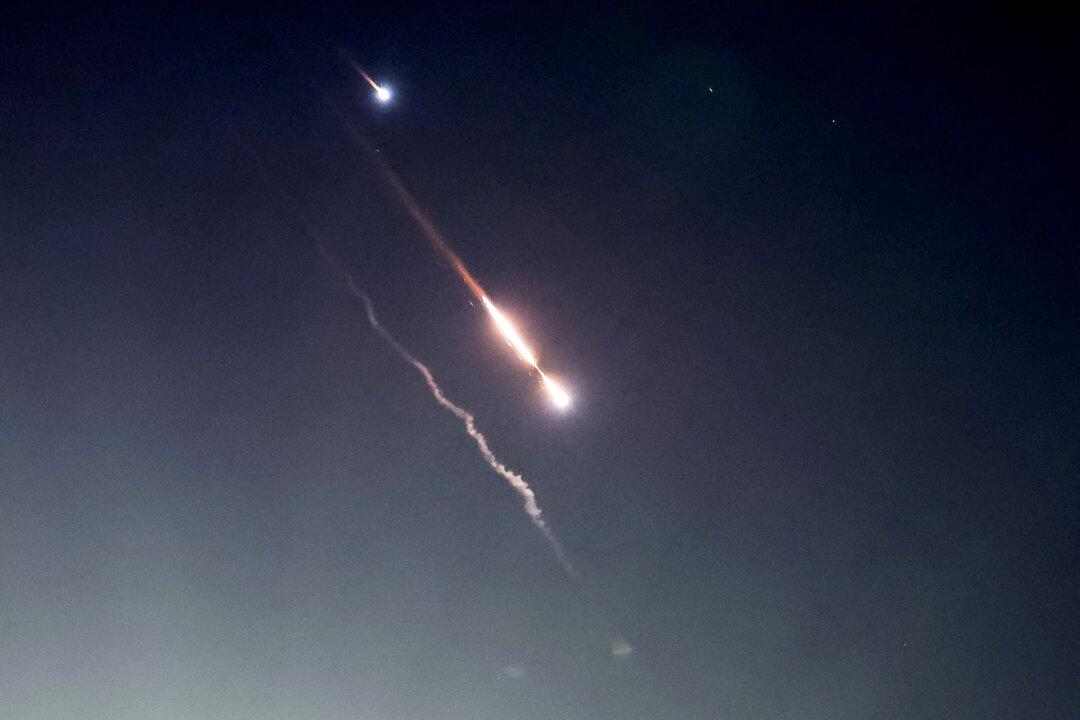Former Secretary of State Mike Pompeo said on Monday that the United States should do “everything we can” to protect Taiwan, because the island nation’s economy plays a key role in the supply chains of a variety of American industries.
Pompeo, a possible presidential candidate, stressed that the West needs to make clear to the Chinese Communist Party (CCP) that there would be severe consequences if it moved against the democratic, self-ruled island of Taiwan.
“The United States should behave with reciprocity. We should demand that the Chinese Communist Party conform to international rules in the South China Sea, and not claim it all for their own like it’s one big Chinese lake,” Pompeo said.
“In the end, this is about deterrence. You have to convince the Chinese Communist Party that there are real costs for their bad behavior,” he added.
“And if they don’t believe that, if they hear a president who says ‘a minor incursion into Europe might be OK,’ or they see a president abandon Afghanistan, where we get 13 Americans killed—those are provocative, those are the kinds of things the Chinese leadership will see as appeasing, and it puts American lives at risk,” Pompeo said.
The CCP has been ramping up pressure on Taiwan recently as the communist regime attempts to assert its claims of sovereignty over the island, with a large uptick in the number of aerial missions conducted over Taiwanese waters in the past three years.
Security Guarantee
When Smith asked Pompeo whether he supports Sen. Lindsey Graham’s (R-S.C.) comments on having U.S. forces on the ground to defend Taiwan if tensions rise between the island and China, Pompeo said, “Yes, we should do everything we can, and we should be doing it today.”
“We often talk about Taiwan in isolation. Think about this. Japan will almost certainly get drawn into this if there is an invasion of Taiwan. We have a security guarantee to support Taiwan—much like Article 5 in the NATO agreement,” Pompeo said.
“What we need to do is focus today on giving the Taiwanese the tools they need to make sure that this day never happens,” he continued. “But when push comes to shove, the United States is going to have to be all in to protect American interests throughout the Pacific. That includes Taiwan, Japan, our friends and allies in Australia, South Korea,” he added.
Graham, meanwhile, echoed similar sentiments to Pompeo that CCP leader Xi Jinping and Russian President Vladimir Putin feel empowered by the chaotic withdrawal of American forces from Afghanistan.
During an interview on Fox News last week, Graham said the United States should aggressively train Taiwanese forces, send F-16 jets to the island, install nuclear-tipped missiles in its submarines, and dispatch American troops to defend the island.
Citing Taiwan’s key role in the microchip industry, the Republican lawmaker noted that he believes the CCP is “setting the stage possibly for a blockade” of the island.
“The Communist Chinese party is going to test us dramatically this year and next year before the election,” he said. “In 1961, the Russians tried to isolate West Berlin. So I’m fearful that the Chinese may be setting conditions to blockade Taiwan in the coming months or weeks, and we need to respond forcefully if they do that.”
Taiwan makes more than 60 percent of the world’s semiconductors and more than 90 percent of the most advanced versions. Computer chips compose 15 percent of the country’s GDP, and most semiconductors are produced by one company—the Taiwan Semiconductor Manufacturing Corporation.
Graham cited the island’s role in producing microchips and the risk of the CCP—which is militarizing at a rapid rate—gaining “a monopoly on the digital economy” as a reason for defending the island.
In response to Graham’s remarks, Pompeo said strengthening Taiwan’s security include measures the United States should be doing “even as we speak.”
“We should be doing it today … it’s not a decision to make a month from now, or six months from now. This is work that should be taking place even as we speak, to reduce the risk that the Chinese Communist Party sees any green light towards invading Taiwan,” Pompeo said.






Friends Read Free